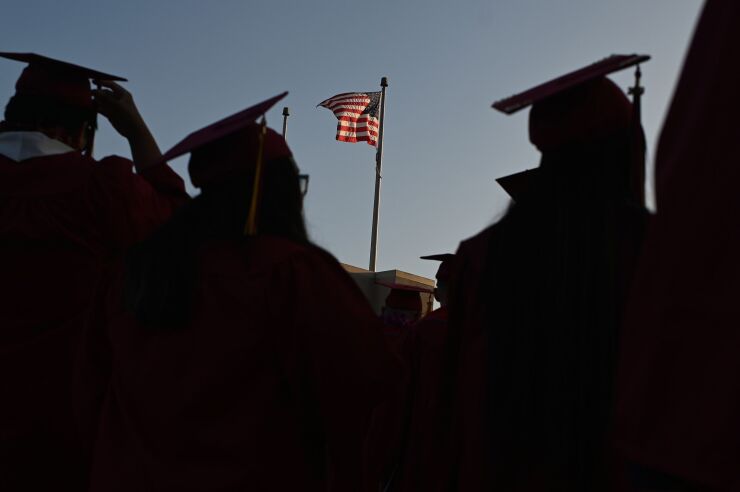A federal judge dismissed a lawsuit by six Republican-led states challenging President Biden's student-loan forgiveness plan, finding the states failed to show they'd be directly harmed.
U.S. District Judge Henry Edward Autrey in Missouri on Thursday rejected the states' request to put the plan on hold. The White House officially opened applications this month for qualified borrowers to receive as much as $20,000 in debt relief.

Nebraska, Missouri, Arkansas, Iowa, Kansas and South Carolina sued in September, arguing the president doesn't have the authority to grant widespread forgiveness of student loans. They also claimed the plan would pose financial harm, with Nebraska, Iowa, Kansas and South Carolina arguing they'll lose future tax revenue — a claim the judge rejected.
"These future lost tax revenues are merely speculative," Autrey said in the 19-page opinion. "Moreover, there is nothing imminent about what may happen several years in the future."
The Biden administration says it has the legal authority to cancel the debts and that the states lack the legal standing to challenge the plan, because changes to the proposal announced since its rollout address the primary concerns raised in the lawsuit.
Several other
The states claim the plan provides an incentive for borrowers to consolidate their privately held loans into a federal Direct Loan to qualify for forgiveness, which would lessen interest payments owed to local loan servicers and result in revenue loss on eliminated Direct Loans that are serviced by those authorities.
But the Biden administration tweaked the program guidance on the same day the lawsuit was filed, opting to exclude non-federally held loans from forgiveness, including any loans consolidated into Direct Loans after Sept. 29.
In his order dismissing the case, Autrey said the states behind the challenge cannot sue on behalf of loan servicers, which he says are independent financial entities despite their ties to local governments. He also said the Biden administration's decision to exclude loans consolidated after Sept. 29 eliminates the threat of revenue loss outlined in the lawsuit.
Under the plan, as much as $20,000 in federal student loans can be forgiven for certain borrowers making less than $125,000 per year or $250,000 for households.
Biden's plan relies on a 2003 law that allows the Education Department to waive loan requirements to support borrowers in an emergency. Congress passed it to help borrowers serving in the military in the wake of the Sept. 11 attacks. Biden declared the COVID-19 pandemic is such an emergency, even as deaths and infection rates fall significantly.
The case is Nebraska v. Biden, 22-cv-01040, U.S. District Court, Eastern District of Missouri (Eastern Division).






